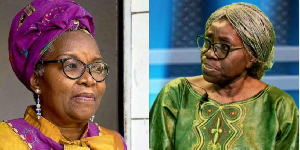While some seemingly cohesive heterogeneous francophone African nations are run by brazen tyrants some of who have no regard for human life, ours is run-or so most francophone have long believed-by well-intended souls, who sometimes get it wrong but always have noble goals in mind and are merely the product of their times.
Most of these francophones in Cameroon think and believe in a “united country” being poorly governed.
That such a convenient and manifestly absurd rendering of Cameroonian history makes sense to so many francophone seems preposterous to most Anglophones who know about the heinous legacy of francophone domination and the depth and breadth of the nation’s linguistic, cultural and political divide.
It is as if millions of Cameroonians occupy one of two utterly irreconcilable poles of reality.
Those at one of these poles find it plausible that tens of once viable economic entities in Anglophone Cameroon, such as WADA in Wum, NWCA, Cameroon Bank, Ndu tea estate, Santa Coffee estate etc, went bankrupt are merely coincidental.
Those at the other pole are of the opinion that enough isolated incidents such as these, after a few decades of francophone rule, constitute a trend, and actually speak to the deeply entrenched marginalization and systemic effort to assimilate East Cameroon.
It is the cognitive legacy of a very real history, in which Cameroon policies, written and carried out by francophones ignores, brutalizes and marginalize Anglophones.
Prior to the launching of the SDF and subsequent militancy of most Southern Cameroonians, certainly most francophones had heard nothing about this marginalization of their brethren East of the Moungo.
They had never heard about the widespread economic rape of East Cameroon, they knew nothing of the fact that hundreds of their fellow compatriots where being tortured and imprisoned for their political astuteness vis-a-vis the real history of their beloved country, nor did they know the truth about the “seemingly united” nature of their country.
These differences in the francophone-Anglophone perception have far less to do with Anglophone paranoia than with francophone denial.
Confronting the present situation in Cameroon is the francophones’ responsibility as well because even though they, in the present, are not to blame for the system they inherited, the fact is; they have inherited it nonetheless, and continue to benefit, consciously or not, from the entrenched privileges that are a legacy of the system.
Personally, it is frustrating coming to grips with the notion that almost everything I know, or thought I knew about the uniqueness of my country is wrong, and that most of the things I was taught was wrong and/or falsified.
But unless we Anglophones continue to stridently challenge the way in which francophone perspectivism blinds them to the national reality, the cycle of ignorance, denial and complicity will continue.
Challenging francophone perspectivism will require Anglophones to come to grips with the distressing but true reality that their version of Cameroon history is perhaps quite a bit more accurate than the version offered by successive Cameroonian administrations.
Because in our country with its painful history of unspeakable inequality, this is part of what being an Anglophone is.
In a healthy society, it seems painfully apparent at present that the kind of openness needed to truly take us forward remains a precious commodity. Many of us have often likened the present conditions in Cameroon to a dysfunctional married couple.
Where the analogy with domestic violence fails, at least I hope, is that in the abusive relationship between partners, the best advice is almost for the abused to leave at the first safe and available moment.
But when it comes to our beloved country, unlike the dynamics between domestic partners, Anglophones and fancophones are pretty much stuck with one another, if not in the same homes certainly in the same communities, be it in Akwa, Nkolbissong, Limbe, Nkambe, or Ngoundere.
We cannot walk away. We must not. We are stuck here and must learn to make the best of it, but that will require courage and honesty especially from some francophones who have been quite practiced at bigotry, cowardice and deception.
We must enter into honest dialogue about our national condition, without blinders. We must now insist on a different and more difficult national discussion for righting the wrongs in our beloved country.
In all of this I am being deliberately provocative, and no matter how unsettling such provocation may prove to be, let us remember that provocation is often what is needed in order to shake the complacency from the minds of the masses, not that anyone appreciates being shaken up any more, in Cameroon.
We can borrow a leaf from Martin Lurther King Jr. last full book, Where do we go from Here: Chaos or Community in which he extort that “change does not roll in on the wheels of inevitability, but come through continuous struggle."
Opinions of Thursday, 24 July 2014
Auteur: cameroonjournal.com














